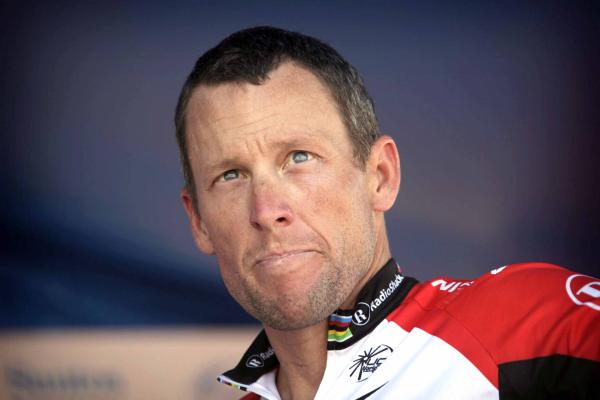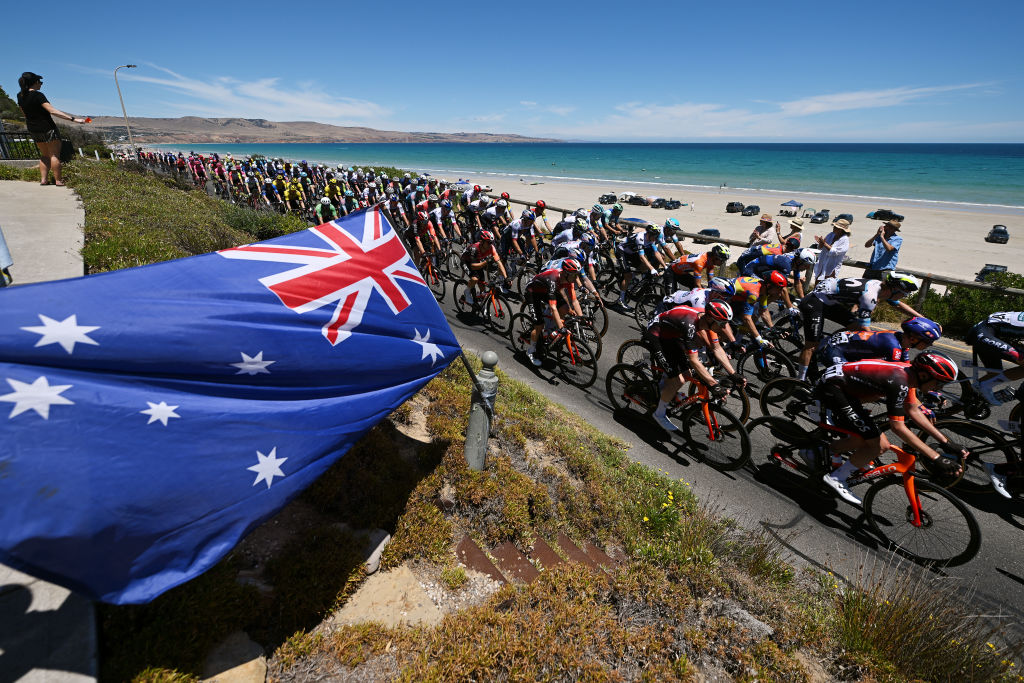Ashenden’s view on Armstrong doping allegations
Calls for investigation into alleged corruption involving UCI, lab and rider

Dr. Michael Ashenden, an independent member of the UCI's panel of experts that reviews the blood passport data of professional cyclists, has welcomed possible investigations into alleged corruption within the sport’s governing body. These surround allegations in which the UCI is accused of covering up a positive EPO test from Lance Armstrong during the 2001 Tour de Suisse.
Landis speaks on Hamilton confession
Hamilton gives back Olympic time trial gold medal
Hamilton alleges Armstrong EPO positive cover-up on 60 Minutes
UCI rejects Hamilton's accusations of 2001 Armstrong cover-up
Ekimov denies Hamilton's claims of Armstrong doping
Armstrong attorneys said to have suggested joint defence with Hamilton
Sports governing bodies to face greater scrutiny in Switzerland
The allegations were first made by Floyd Landis in 2010 but resurfaced last week when Tyler Hamilton, another ex-teammate of Armstrong, backed Landis' allegations. The UCI is currently taking legal proceedings against Landis and have called his allegations "scandalous and mischievous."
However, last week Hamilton talked to "60 Minutes" reporter Scott Pelley and said, "I know he's [Armstrong] had a positive test before...for EPO [at the] Tour of Switzerland, 2001."
Asked how he knew of the incident, Hamilton said "He [Lance Armstrong] told me. He was so relaxed about it and he kind of said it off the cuff and laughed it off."
"People took care of it," Hamilton told "60 Minutes". "I don't know all the exact details but I know that Lance's people and the people from the other side, the governing body of the sport (UCI), figured out a way to make it go away.
"I was told this...by Lance.”
Hamilton has testified in front of a grand jury in the US, and could face imprisonment if it’s found that he has lied about any of the information he has provided them with during his career.
The latest race content, interviews, features, reviews and expert buying guides, direct to your inbox!
Armstrong has denied both using performance enhancing drugs and being involved in a covered up dope test at the Tour de Suisse. He has claimed that Landis and Hamilton are both discredited and have tarnished reputations having lied about their doping practices until recently. Landis and Hamilton have both lied about their past drug use but admitted their guilt at different points since May 2010.
Ashenden, who has gone on the record in the past with claims that Armstrong used EPO in the 1999 Tour de France, believes that a thorough investigation must be carried out in order for full transparency to be respected.
"The 60 Minutes story suggests that investigations are under way. So it’s reasonable to conclude that there is at least some basis for them to investigate whether it happened. Is it feasible or possible that a cover up could ever happen? If nothing else, the fact that there’s an investigation suggests that it is,” Ashenden told Cyclingnews.
Lance Armstrong made two donations to the UCI during his racing career. The seven-time Tour de France winner signed a personal cheque for $25,000 in 2002 and then his management company Capital Sports and Entertainment made a second payment of $100,000 in 2005.
The "60 Minutes" exposé also brought to light a letter reportedly from USADA which purports the Swiss lab which tested Armstrong at the 2001 Tour de Suisse considered Armstrong's sample "suspicious" and "consistent with EPO use". The CBS news program learned that the director of the Swiss lab had met with both Lance Armstrong and team director Johan Bruyneel concerning the test from the Tour de Suisse at the time.
"60 Minutes" claims that the Swiss lab director has since given a sworn statement to the Federal Bureau of Investigation (FBI). "60 Minutes" has learned that the lab director testified that a representative of the UCI wanted the matter of the suspicious test to go no further.
“I find allegations of a meeting extremely disturbing, and it needs to be investigated,” Ashenden said.
"I think that the payments Armstrong made to the UCI, who policed him for drug use, are simply indefensible. Current UCI management have acknowledged that, admitting that it would not be allowed to happen in today’s environment. Armstrong’s statements under oath concerning the amounts he paid, how and why he made the payments are very difficult to believe, and do nothing to dispel suspicion. It’s a murky affair, and it needs to be resolved”.
"It’s hard to have something like this floating over the sport or the Lausanne laboratory. Now it’s not just Armstrong but the UCI and the Lausanne lab who are under a cloud. That cannot be allowed to persist because the integrity of the labs and the sport have to be beyond question for our antidoping system to function” said Ashenden.
"It’s ludicrous to suggest that Hamilton’s accusations are about seeking publicity for a book deal – he could have made the same claims in a book, and been guaranteed just as much publicity, without choosing to lie to a grand jury about it! So the fact that he’s made these very serious allegations demands that an investigation is made, and until it’s resolved there is going to be a nasty cloud hanging about”.
"Now whether or not it amounts to corruption is a decision that can only be reached by weighing the evidence, and I hope that whether it’s a US-based or another investigation, that any evidence is brought to light. Until then, we are left to ponder that Armstrong sent payments which were accepted by the UCI in circumstances that are deemed inappropriate by today’s standards”.
On Monday former UCI President Hein Verbruggen told another publication that “Lance Armstrong has never used doping. Never, never, never. And I say this not because I am a friend of his, because that is not true. I say it because I'm sure. Even if we would like, it would not be possible to bury a positive test. Test results are not only to the UCI, but also to the WADA.”
Asheden replies: “Mr Verbruggen’s quote is no more or less insightful than Armstrong saying he was tested 500 times and never tested positive. It’s a truism that he has not been sanctioned for doping, but I dispute what Verbruggen said about Armstrong never having used drugs (which is a very different thing to him being sanctioned). I’ve said before that there’s no doubt in my mind that Armstrong used EPO in the 1999 Tour de France.
For Mr Verbruggen to deny that is just unfathomable to me. The only other possibility than Armstrong injecting EPO was that the French lab deliberately spiked the samples. No one has ever given any plausible account for how that might have been accomplished. Spiking or injecting. They’re the only two possibilities. So essentially Mr Verbruggen is inferring that the Paris lab did precisely what the UCI denies is impossible for the Lausanne lab to have done – tamper with a test outcome.”
Daniel Benson was the Editor in Chief at Cyclingnews.com between 2008 and 2022. Based in the UK, he joined the Cyclingnews team in 2008 as the site's first UK-based Managing Editor. In that time, he reported on over a dozen editions of the Tour de France, several World Championships, the Tour Down Under, Spring Classics, and the London 2012 Olympic Games. With the help of the excellent editorial team, he ran the coverage on Cyclingnews and has interviewed leading figures in the sport including UCI Presidents and Tour de France winners.

